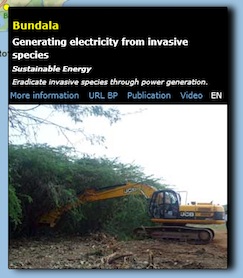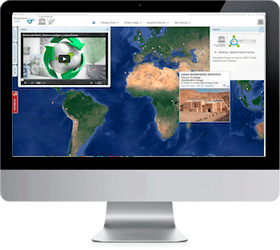A collective initiative in Bundala biosphere reserve.
 The Bundala National Park, Sri Lanka’s first wetland to be declared a Ramsar site and a biosphere reserve under UNESCO is today facing tough times in the face of invasive plants encroaching the natural habitat of the wetland.
The Bundala National Park, Sri Lanka’s first wetland to be declared a Ramsar site and a biosphere reserve under UNESCO is today facing tough times in the face of invasive plants encroaching the natural habitat of the wetland.
The spread of these two invasive plant species have been facilitated by meandering livestock herds over the years and is now posing a major threat to the habitat.
In the face of such threats, conserving and preserving the Bundala National Park has become a key worry for the Wildlife Conservation Department of Sri Lanka.
Now tied up with United Dendro Energy Private Limited, a subsidiary of Lanka Orix Leasing Company (LOLC) to eradicate the invasive plants, Wildlife Conservation has agreed to give the removed Kalapu Andara plants to United Dendro to be used for their biomass power generation activities.
The project implementation of removing the invasive plants are done in full compliance with the country’s Flora and Fauna Act and will be supervised by the Forest Conservation Officers, Wildlife Conservation Department. This is a collective initiative by the Department of Wildlife Conservation, UNESCO Sri Lanka and Ramsar Convention of Asia-Oceania Region with a Rs 2 b investment.
Bundala National Park recently opened a wetland laboratory in the land adjoining the park where the park office is situated. Funded by UNESCO after taking in consideration a project proposal forwarded by Wildlife Conservation Department, the laboratory is fully equipped to conduct research and ascertain the quality of wetland water samples, maintain data banks, and data collection of its visiting bird species.
Sources:















